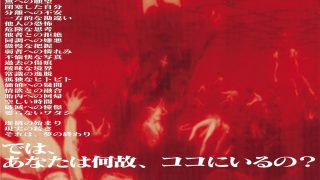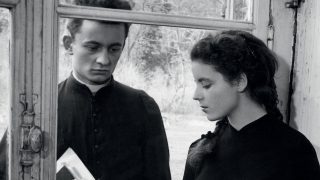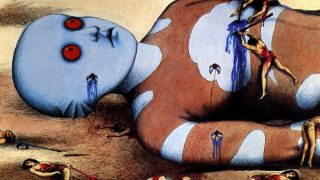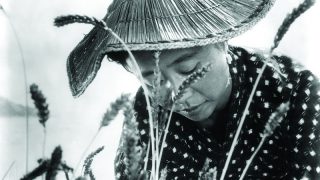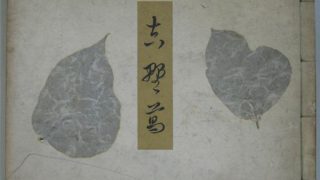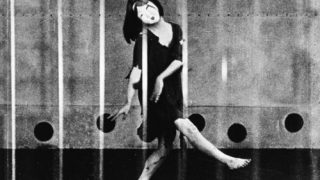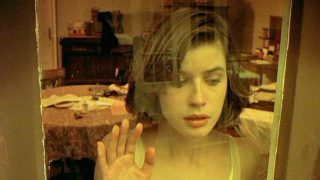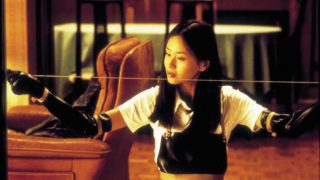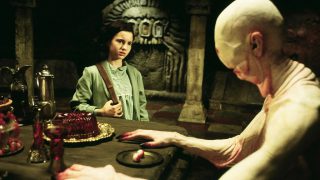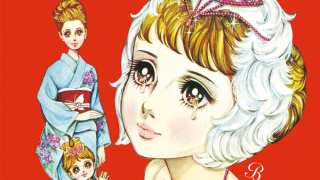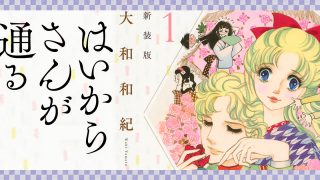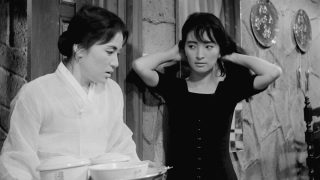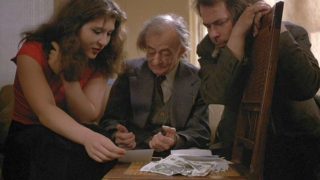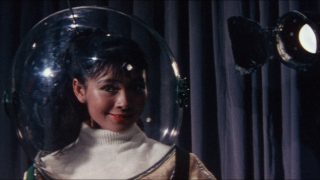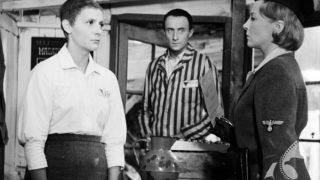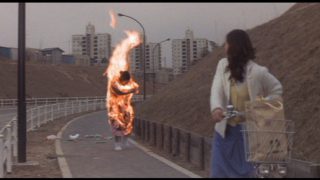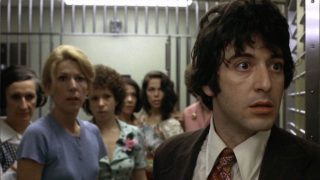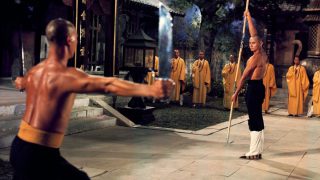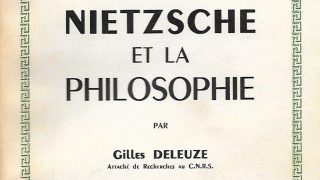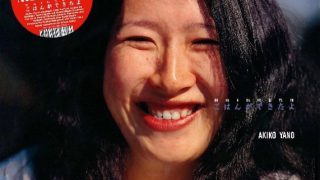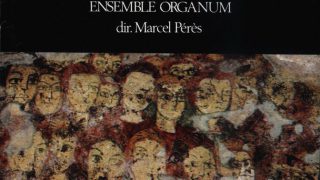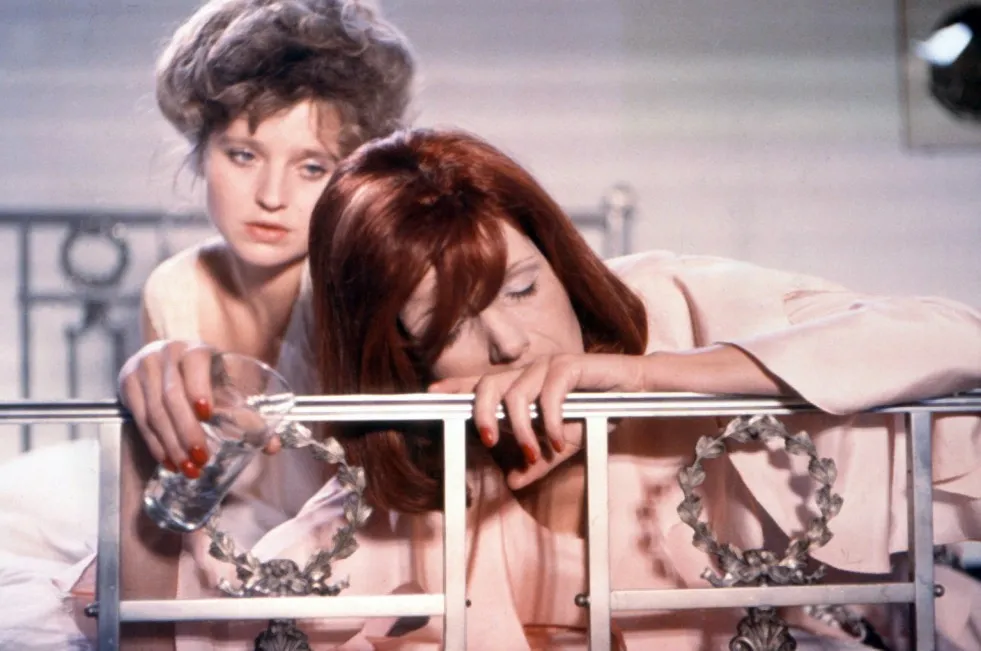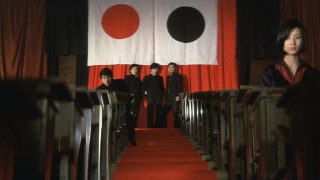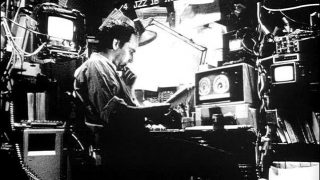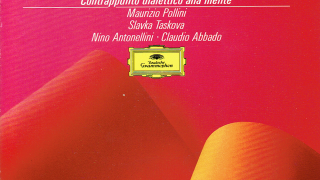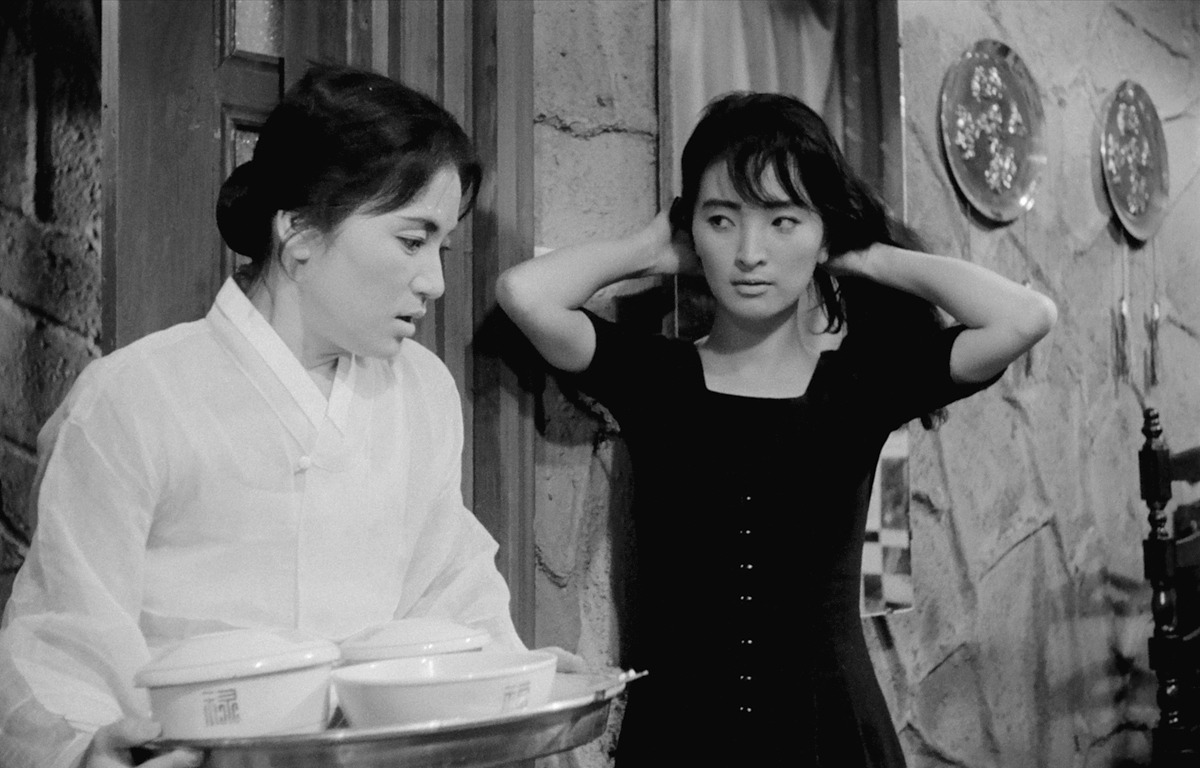Overview
“The Housemaid” is a 1960 South Korean psychological thriller/domestic horror film.
It depicts a horrible story in which a bourgeois musician’s family is destroyed by a housemaid after he had relations with her.
Produced, directed and written by Kim Ki-young. Black & white. 111 minutes.
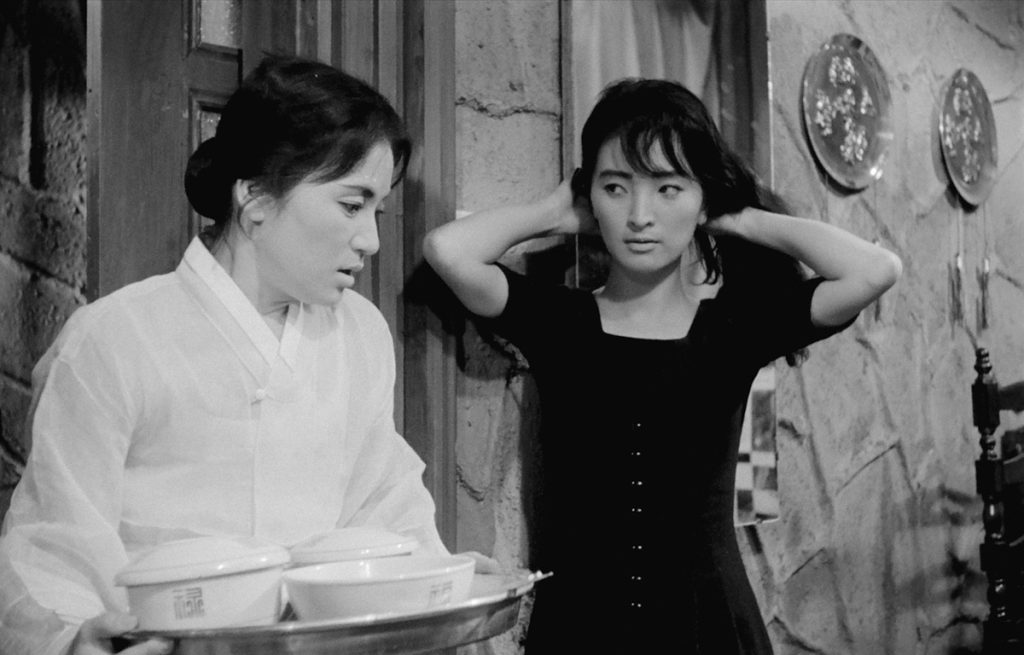
Commentary
The film begins with a scene in which musician Kim Dong-sik (Kim Jin-kyu) talks with his wife (Ju Jeung-ryu) at his home about a newspaper story of a maid in Geumcheon, Seoul, who was murdered after having an affair with her employer.
The ending scene is a sequel to the beginning of the film, and the main plot is told as a story-within-a-story.
“The Housemaid” is characterized by its modern style, which shows the influence of German expressionist films, such as Fritz Lang works, and Hollywood melodrama films.
“The Housemaid” was filmed just seven years after the Korean War (1950–1953). It was released in 1960 during the Second Republic period between the April Revolution (1960) and the May 16 military coup d’état (1961), and it became a box-office hit that recorded 100,000 audiences in South Korea.
In South Korea at that time, new values such as materialism and greed came into fashion in the context of industrialization and modernization. These values acted destructively on traditional South Korean culture and system. This film reflects such a social situation.
The house of the Kims in the film is an emblem of modernization and Americanized lifestyle. Mr. and Mrs. Kim are depicted as the personification of the middle-class people obsessed with desire for wealth. The stairs in the house of the Kims are used as a stage set which symbolizes rise and fall in social scale. And, in the character setting of the maid, sexual desire is connected to the aspiration to achieve upper-middle-class life.
The film became highly regarded worldwide after a retrospective of Kim Ki-young’s works in 1997 at the Pusan International Film Festival.
The website “Koreanfilm.org” described the film as “one of the top three Korean films of all time”.
Kim Ki-young’s films, “Woman of Fire” (1971) and “Woman of Fire ’82” (1982) are remakes of “The Housemaid”. These three films are called “Housemaid trilogy”.
Joseph Losey’s film “The Servant” (1963) is similar to this film in the subject of reversal of the master-servant relationship between an employer and his servant.
The film was restored in 2008 by Korean Film Archive (KOFA) with the support of Martin Scorsese’s World Cinema Foundation.
The 2010 South Korean film “The Housemaid” directed by Im Sang-soo is a remake of this film.
The 2019 South Korean film “Parasite” directed by Bong Joon-ho was produced under the strong influence of this film.
In 2024, this film was ranked No. 1 in the “100 Korean Films” list by Korean Film Archive.
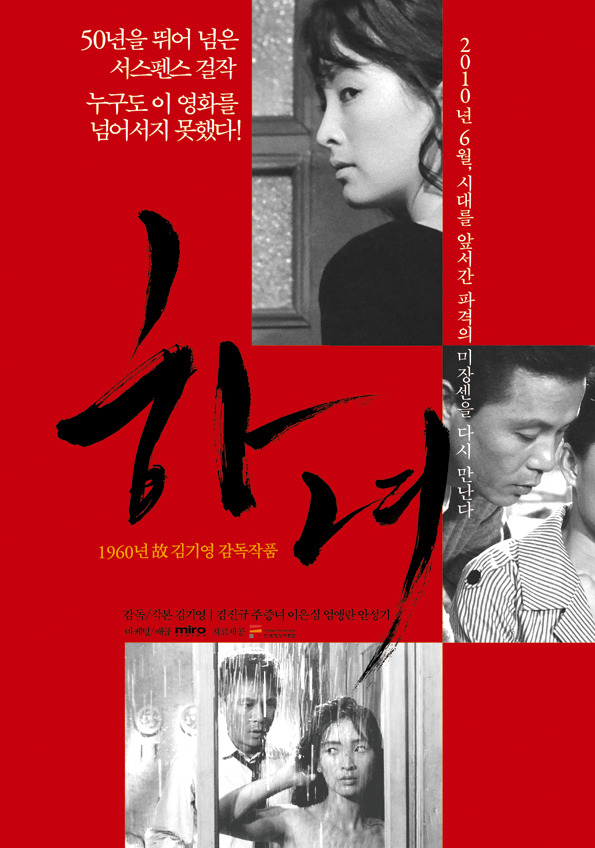
- Cross-Search for “The Housemaid Kim Ki-young” on JustWatch
- Search for “The Housemaid Kim Ki-young” on Amazon.com
Plot (Spoiler Alert)
Dong-sik lives with his wife, his eldest daughter Ae-soon, and his son Chang-soon (Ahn Sung-ki) in his new house of two stories, working as a teacher of the music club and a piano accompanist for the choir group at a textile factory with a boarding house, where female employees work.
Ae-soon is undergoing rehabilitation with crutches because she is paralyzed on her legs.
Mrs. Kim does a sewing machine job on the side because they need to cover the cost of extending their house. She falls ill from overwork.
One day female factory worker Kwak Seon-young sends a love letter to Dong-sik. He consults with the boarding mistress as to Seon-young. The boarding mistress suspends Seon-young from duty for three days. Seon-young leaves the factory and returns home.
Cho Kyung-hee (Um Aing-ran), who had been Seon-young’s roommate, starts taking piano lessons from Dong-sik at the house of the Kims.
Mrs. Kim says to her husband that their house is too big and she can’t keep it without a housemaid.
Dong-sik asks Kyung-hee to look for a housemaid for him. Kyung-hee introduces Myung-sook (Lee Eun-shim), who works as a cleaner at the factory, to the Kims. Myung-sook starts working as the housemaid for the Kims.
Mrs. Kim is pregnant with her third child. She goes back to her hometown with her two children. Dong-sik is alone with the maid at home.
Seon-young commits suicide. Dong-sik and Kyung-hee attend her funeral in her hometown.
That night, at Dong-sik’s house, Kyung-hee tells Dong-sik that she loves him. He rejects her because he wants to defend his family life. The maid secretly looks at their conversation.
After Kyung-hee leaves, the maid seduces Dong-sik, and he has sexual relations with her.
Mrs. Kim and their children come back home. Dong-sik tries to hide his relationship with the maid, but the maid says to him that she is pregnant with his child.
Dong-sik confesses to his wife that he committed adultery with the maid and made her pregnant. Mrs. Kim is shocked to hear of it.
Mrs. Kim directs the maid to have a miscarriage by falling down the stairs of their house. The maid falls down the stairs, and her fetus dies.
Mrs. Kim gives birth to a baby boy.
One day Dong-sik’s son Chang-soon tells the maid to bring some water. The maid makes him drink a cup of water, and lies to him by saying that she poured rat poison into it. Chang-soon goes into a panic, and falls to his death down the stairs.
Dong-sik is going to turn the maid into the police, but the maid threatens to inform the factory about all the things which happened in Dong-sik’s house.
Mrs. Kim asks the maid to keep quiet about the case, telling the maid that she can have anything she wants because Mrs. Kim is afraid that her husband will lose his job and they will lose their means of livelihood. The maid says that she wants Dong-sik.
In this way, the master-servant relationship between the Kims and the maid is reversed.
The maid shares a bed with Dong-sik in a room upstairs every night, while Mrs. Kim works hard in the downstairs room, using a sewing machine.
Mrs. Kim tries to poison the maid by mixing the rat poison into the soup, but fails because the maid replaced the rat poison with sugar water.
One night Kyung-hee visits the house of the Kims. When she is playing the piano, the maid comes in the room, and stabs Kyung-hee’s upper chest with a knife to get rid of her. Kyung-hee runs off, bleeding from the wound.
The maid asks Dong-sik to commit suicide with her by swallowing the rat poison. They commit double suicide by drinking poisoned water.

